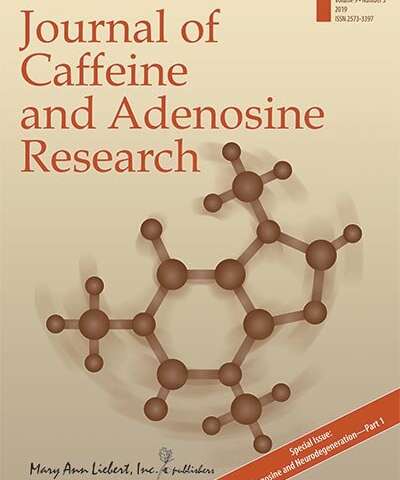Emerging role of adenosine in brain disorders and amyotrophic lateral sclerosis

The role of adenosine in neurodegeneration and neuroregeneration has led to growing attention on adenosine receptors as potential drug targets in a range of brain disorders, including neuroregenerative therapy and treatment for amyotrophyic lateral sclerosis (ALS). These are just two areas of focus in the upcoming special issue on Adenosine and Neurodegeneration—Part II published in Journal of Caffeine and Adenosine Research.
Guest Editor David Blum, University of Lille, Inserm, has compiled a wide-ranging collection of articles on the emerging role of adenosine and neurodegeneration and the implications it has for therapeutic drug development.
Sara Xapelli, Ph.D., Universidade de Lisboa (Portugal), Ricardo Rodrigues, Ph.D., University of Coimbra (Portugal), and colleagues coauthored an article entitled “Neurogenesis and Gliogenesis: Relevance of Adenosine for Neuroregeneration in Brain Disorders.” In this article the authors review the current understanding of the role of adenosine and caffeine as modulators of neuronal activity and as potential targets for the formation of new neurons and oligodendrocytes. They consider these concepts in the setting of their relevance to brain regeneration.
Ana Sebastião, Universidade de Lisboa (Portugal), Yijuang Chern, Ph.D., Academia Sinica (Taipei, Taiwan) and colleagues coauthored the article entitled “Adenosine and its Receptors as Potential Drug Targets in Amyotrophic Lateral Sclerosis.” The researchers review the growing body of evidence showing changes in adenosine metabolism and adenosine receptor function as ALS develops and progresses. They discuss how adenosine homeostasis and adenosine receptors are altered in ALS patients and experimental models of ALS, and the potential for targeting these factors as drug targets.
Source: Read Full Article



